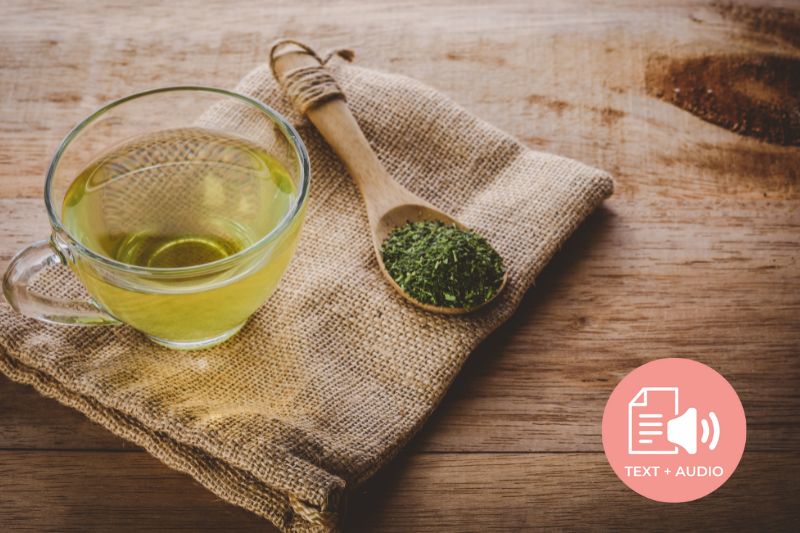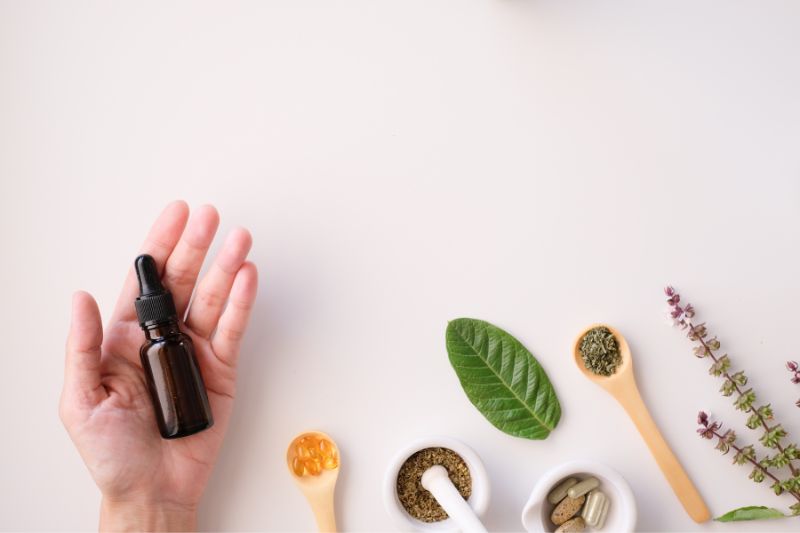If you have allergies, you may consider starting a green tea drinking habit. Evidence suggests that the healthy brew may also provide relief from allergies. Epigallocatechin gallate (EGCG), a compound in green tea, has been found to be capable of blocking an important cell receptor that contributes to the allergic response.
In past studies, other compounds in green tea also demonstrated anti-allergenic properties, but EGCG seems to be the strongest thus far. This compound is the primary source of various teas health benefits, but green tea has it in higher concentrations. Further research is necessary to establish green tea as an effective source of antihistamines. Still, it’s very promising, and it very likely wouldn’t hurt to get started on a green tea drinking habit now.
Is green tea a traditional allergy remedy?
This is undoubtedly the case. People have always believed green tea to have good stuff that fights off cold and allergy symptoms such as sneezing, coughing, watery eyes, etc. This belief in the therapeutic effect of green tea, once based merely on anecdotal evidence gathered through generations of green tea drinkers, has now been substantiated by scientific evidence.

Nonetheless, when it comes to being recognized as a legitimate natural antihistamine, green tea still needs further study. For instance, it’s not known yet how much green tea should be ingested for its therapeutic effect to be accessed. Besides this, scientists should also look for other possible anti-allergenic compounds in the tea.
Another possible concentration of study is determining which green tea variety would be most effective. Thus far, a 2013 study has indicated that Benifuuki green tea contains a high amount of methylated catechins and EGCG. In a double-blind clinical trial, study participants who were allergic to Japanese cedar pollinosis drank this green tea. By the eleventh week, when cedar pollen season was at its peak, the participants had demonstrated reduced symptoms.
How do green tea’s anti-allergenic properties work?
EGCG, the most abundant and active antioxidant in it, has already been shown to be capable of fighting allergic reactions in mice. Researchers learned that it works by blocking histamine and immunoglobulin E production. These two compounds in the body are what trigger and sustain allergic reactions.
Studies also show that a methylated form of the antioxidant can block the IgE receptor, which is mainly responsible for an allergic reaction. It brings forth a more potent anti-allergenic response than regular EGCG. This would make methylated EGCG green tea’s strongest anti-allergenic compound.
What other kind of tea is a good antihistamine?
Why look to tea for an allergy solution? Alternative therapies like herbal remedies are often cheaper and kinder to the organs. It’s essential, however, to ensure that you’re not taking anything, mainly medications, with which natural solutions like herbs and teas may interact.
Green tea may be one of the most popular teas with antihistamine properties, but other kinds of tea are also frequently recommended. You can make tea from the following elements:
Stinging Nettle
This is considered a weed, but it is actually a highly medicinal plant, like most weeds. It has antioxidant and anti-inflammatory properties that can help reduce allergy symptoms. Homeopaths are convinced of its efficacy, but scientific researchers have yet to find something more conclusive because, while stinging nettle extract has shown positive effects in a study, the placebo also achieved the same.
Ginger
Known as a popular cooking spice, ginger is said to produce an extract that is just as good as loratadine, an allergy medicine, in improving nasal symptoms associated with allergic rhinitis. What makes it better is that ginger extract has fewer side effects than expected.

Licorice root
This is said to have significant anti-inflammatory properties and is often used to reduce allergy symptoms. Laboratory studies with rodents already showed excellent results in just three days, but studies involving humans still need to be conducted.
Rosemary
A popular culinary herb, rosemary also has excellent antioxidant and anti-inflammatory properties, particularly effective for respiratory issues. In addition, scientific studies actually support the use of rosemary in treating and preventing asthma and allergy attacks.
Turmeric
Again, animal studies showed that this has anti-allergenic properties that block histamine release from mast cells, reducing the subjects’ allergic response. Nonetheless, human research is still necessary to recognize it as a legitimate natural antihistamine.
Final Thoughts
Green tea is reported to be the second-most consumed drink on the planet after water. Researchers are already determining how effective it is in fighting diseases like cancer, cardiovascular ailments, arthritis, and even tooth decay. Different allergies have now been added to the list.
The placebo effect is something to consider, of course, but, thanks to research efforts, green tea’s antihistamine effects can be explained scientifically with proper identification of the responsible components. Further studies are necessary, but many believe it’s only a matter of time before its antihistamine effect can be officially added to green tea’s considerable list of health benefits. You can read about them here.
While drinking green tea is healthy and most people can safely start a daily drinking habit if they choose to, it’s always best to consult your physician if you want to change anything in your diet, especially if you already have a condition. If you’re particularly after something that will help with your allergies, it’s also recommended that you see your doctor for a prescribed treatment option.
Get Free Bonus Books

Sign up for free to the Green Tea Club to get advice and exclusive articles about how to choose Japanese Tea, and tips, tricks, and recipes for enjoying Japanese tea.
About the author
Kei Nishida
Author, CEO Dream of Japan
Certification: PMP, BS in Computer Science
Education: Western Washington University
Kei Nishida is a passionate Japanese green tea connoisseur, writer, and the founder and CEO of Japanese Green Tea Co., a Dream of Japan Company.
Driven by a deep desire to share the rich flavors of his homeland, he established the only company that sources premium tea grown in nutrient-rich sugarcane soil—earning multiple Global Tea Champion awards.
Expanding his mission of introducing Japan’s finest to the world, Kei pioneered the launch of the first-ever Sumiyaki charcoal-roasted coffee through Japanese Coffee Co. He also brought the artistry of traditional Japanese craftsmanship to the global market by making katana-style handmade knives—crafted by a renowned katana maker—available outside Japan for the first time through Japanese Knife Co.
Kei’s journey continues as he uncovers and shares Japan’s hidden treasures with the world.
Learn more about Kei









